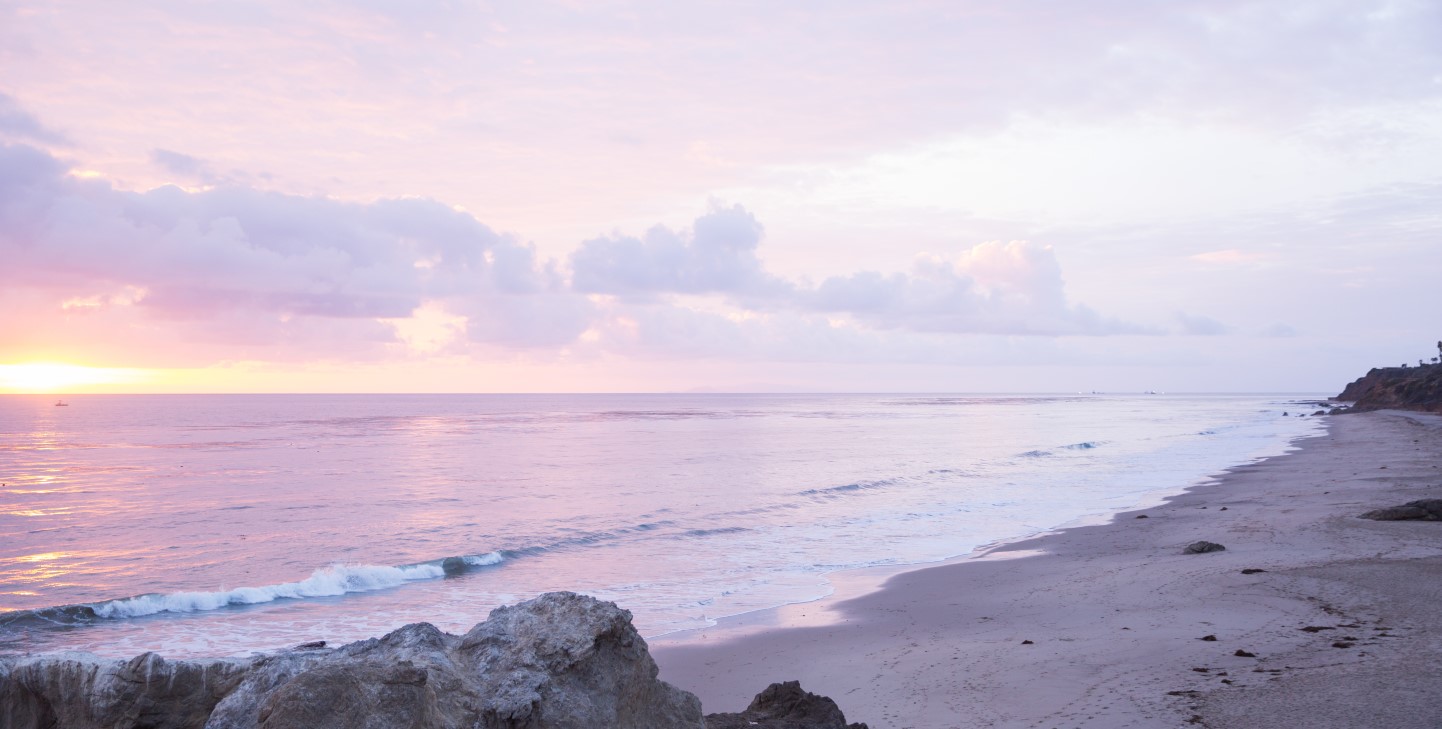Discover Raja Ampat, Indonesia's diving paradise in the Coral Triangle. Explore rich marine life, pristine waters and unique dive sites like Misool and Cape Kri.
GVI
Posted: July 10, 2024

GVI
Posted: March 31, 2023
If you’re planning a trip to Tenerife, be sure to add the pink sand beaches to your itinerary. These unique stretches of coastline offer a beautiful and memorable experience for beachgoers. In this article, we’ll explore the origins of Tenerife’s pink sand, the science behind its unique colour, the best time of year to visit, the top 5 pink sand beaches to explore, and much more.
The pink sand on Tenerife’s beaches is a result of the island’s geology and volcanic history. The volcanic rocks on the island contain high levels of iron, potassium, magnesium and other minerals. Over time, the waves have eroded these minerals and crushed them into sand, which gives the sand its unique pink hue.
Interestingly, the pink sand on Tenerife’s beaches is not the only coloured sand found on the island. The beaches on the north side of the island have black sand, which is also a result of the volcanic rocks. The black sand is formed from the cooling and solidification of lava, which is then broken down by the waves into small particles. The contrast between the pink and black sand beaches makes for a stunning sight and is a popular attraction for tourists visiting the island.
In addition to the geological processes, the pink sand colour is also due to the presence of tiny microorganisms called Foraminifera. These organisms have a pinkish-red color and contribute to the pink hue when mixed with the volcanic minerals, ultimately creating the pink sand we see today.
Foraminifera are single-celled organisms that live in marine environments and are an important part of the ocean’s ecosystem. They play a crucial role in the food chain, serving as a food source for larger organisms such as fish and whales. Additionally, their shells are used by scientists to study past climate and environmental conditions, as they can provide valuable information about the ocean’s temperature and chemistry.
The best time of year to visit Tenerife’s pink sand beaches is during the months of May to September. During this time, the weather is warm and sunny with consistent temperatures ranging from 24–28 degrees Celsius. These months also offer the best chance for clear skies and calm seas, making it perfect for swimming and sunbathing on the beaches.

There are a number of pink sand beaches on Tenerife, but here are the top five beaches worth exploring:
While Tenerife’s pink sand beaches are undoubtedly a highlight of the island, there are plenty of other attractions and activities worth exploring. Some popular options include hiking Mount Teide, visiting the Siam Park waterpark, exploring the historic city of La Laguna, and whale watching off the coast.
Tenerife has two major airports on the island, Tenerife North Airport and Tenerife South Airport, both of which offer flights to and from major cities in Europe. Once you arrive on the island, there are several transportation options available to get to the pink sand beaches, including taxis, buses and rental cars. To ensure you make the most of your trip, consider researching transportation options in advance and planning your logistics accordingly.
While enjoying Tenerife’s pink sand beaches, there are a few safety precautions to keep in mind. Always check the weather and sea conditions before swimming or participating in water activities. It’s also important to stay hydrated and wear sunscreen to protect yourself from the sun’s harmful rays. Lastly, be sure to follow any posted guidelines or restrictions to ensure that you and your fellow beachgoers stay safe and have an enjoyable experience.
Tenerife has a rich history and cultural significance dating back to the Guanche people who first inhabited the island around 3000 BC. Since then, the island has been under various rulers, including the Spanish Empire, which left a lasting legacy on the island’s architecture and culture. Tenerife’s unique history and cultural heritage offer an opportunity for visitors to learn more about the island’s past while enjoying its natural beauty.
As more tourists discover Tenerife’s pink sand beaches, it’s important to remember the importance of sustainable tourism and protecting the island’s unique ecosystems. This includes minimising waste and pollution, respecting local wildlife and flora, and supporting local businesses that prioritise sustainability. By doing our part to preserve the natural beauty of Tenerife, we can ensure that future generations can enjoy its pink sand beaches and other natural wonders for years to come.
Tenerife’s pink sand beaches offer a unique and memorable experience for any beachgoer. With its geological and biological processes, unique topography, and sunny weather, it’s no wonder why these beaches are so popular among visitors to the island. Whether you’re looking to relax on the beach, explore the island’s other attractions or learn more about Tenerife’s history and culture, there’s something for everyone here. We hope this article has given you a comprehensive guide to exploring Tenerife’s pink sand beaches and everything else this beautiful island has to offer.
If you’re passionate about marine conservation, GVI’s internships and volunteer programs in Tenerife may be the perfect fit for you. Tenerife is a beautiful island located in the Canary Islands of Spain, and it offers a diverse marine ecosystem with unique marine life. Through GVI, volunteers can take part in a range of marine conservation projects. Interns and volunteers receive training and support from experienced staff, and they have the opportunity to work alongside marine biologists and other conservation experts. GVI’s marine conservation programs provide a great opportunity to gain practical conservation skills, contribute to sustainable conservation efforts, and have an unforgettable experience in Tenerife.

Discover Raja Ampat, Indonesia's diving paradise in the Coral Triangle. Explore rich marine life, pristine waters and unique dive sites like Misool and Cape Kri.
GVI
Posted: July 10, 2024